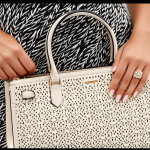Key Trends Shaping UK Women’s Fashion Sustainability
Sustainability is rapidly transforming UK women’s fashion trends, with a significant move towards eco-conscious choices. In recent years, the demand for sustainable fashion UK has surged as consumers become more aware of environmental impact. This shift reflects growing preferences for garments made from renewable resources and manufactured through low-impact processes.
Consumer attitudes now prioritize transparency and ethics, influencing brands to incorporate eco-friendly fashion developments into their collections. Statistics underscore this change: research reveals a notable increase in shoppers opting for sustainable labels, with UK markets showing growth rates double that of conventional fashion segments. This trend is driven by a new generation seeking meaningful purchases that align with personal values.
Also to see : What Are the Essential Fashion Pieces Every UK Woman Should Invest In?
The rise in sustainable fashion adoption is evident in the popularity of biodegradable materials and recycled textiles. UK women contribute to this shift by embracing brands that promote longevity and minimal waste. The evolving landscape also highlights the vital role of education in helping consumers distinguish genuine sustainability from greenwashing. Altogether, these factors converge to redefine how UK women engage with fashion, making sustainability a core element of style decisions.
Leading Sustainable Materials and Brands in the UK
The landscape of sustainable materials is rapidly evolving, with innovations that are reshaping UK fashion. Fabrics such as organic cotton, Tencel, and recycled polyester are gaining traction due to their lower environmental footprint. These materials reduce water consumption, decrease chemical use, and promote circularity by reusing waste. Their rise reflects growing consumer demand for eco-friendly fabrics that balance quality with sustainability.
Also to discover : What Role Does Cultural Influence Play in UK Women’s Fashion Trends?
Top UK ethical fashion brands are at the forefront of this shift. Labels like People Tree and Stella McCartney exemplify commitment to sustainable fashion UK by integrating these materials into stylish, responsible collections. These brands prioritize transparency, fair labour practices, and environmentally sound sourcing. They respond directly to consumer requests for authenticity and accountability.
Recent case studies demonstrate how established UK brands have transformed their operations. From sourcing raw materials responsibly to adopting zero-waste production methods, these transformations echo broader industry calls for sustainability. The embrace of renewable textiles and ethical practices showcases how eco-friendly fashion developments are no longer niche but mainstream. Together, material innovation and brand leadership foster a sustainable future for UK women’s fashion trends.
Innovations in Ethical Fashion Production
Ethical manufacturing is increasingly shaping sustainable production UK by introducing advanced technologies and transparent processes. Unlike traditional methods, which often rely on resource-intensive and opaque supply chains, modern approaches emphasize responsible sourcing to minimize environmental harm and ensure fair labour practices. for example, digital tracking tools enable brands to verify the origin and sustainability credentials of raw materials, fostering greater accountability.
Sustainable production UK also involves techniques like waterless dyeing and zero-waste pattern cutting, which drastically reduce waste and resource consumption. These innovations help cut down carbon footprints and chemical usage, addressing critical industry challenges. Moreover, collaborations between manufacturers and suppliers have become common, reinforcing ethical values throughout the supply chain.
Industry experts highlight how these developments offer scalable solutions, helping both established brands and emerging designers adopt more ethical practices without sacrificing quality or style. Responsible sourcing ensures materials meet strict environmental and social standards, encouraging consumers to trust sustainable labels. As a result, ethical manufacturing is not just a trend but a necessary evolution in UK women’s fashion trends, aligning production with consumer demand for transparency and eco-consciousness.
The Impact of Sustainability on Style and Consumer Choices
Sustainability profoundly shapes UK women’s fashion trends, driving a shift toward sustainable style trends that blend eco-consciousness with aesthetics. Consumers increasingly favour durable, timeless pieces over fast fashion, reflecting a rise in conscious consumerism. This shift promotes garments designed for longevity, repairability, and multifunctional use, helping reduce fashion waste.
Evolving preferences also indicate growing demand for transparency about material origins and production ethics. Shoppers now seek brands that openly communicate their commitment to eco-friendly fashion developments. This transparency influences purchases by building trust and encouraging informed decisions aligned with personal values.
Broader cultural changes reinforce this shift. Movements advocating climate responsibility and social justice resonate deeply within UK fashion choices, strengthening the appeal of sustainable options. Retailers respond by offering collections that meet these values without compromising style or variety.
Statistical data supports this trend: a significant increase in consumers prioritizing sustainability translates into market growth for eco-conscious brands. Ultimately, sustainable style trends are more than a niche; they represent a mainstream transformation in how UK women engage with fashion, inspiring a harmonisation of style, ethics, and environmental awareness.
Expert Insights and Future Projections for Sustainable UK Women’s Fashion
Industry expert opinions consistently highlight that sustainable fashion UK is entering a new phase of innovation and consumer integration. Designers emphasize that sustainability must balance environmental responsibility with creativity and style, ensuring appeal without compromise. Analysts forecast that UK women’s fashion trends will increasingly incorporate circular economy principles, focusing on durability, recyclability, and resource efficiency.
Experts stress the urgency of addressing supply chain complexities through improved responsible sourcing and transparency. Digital tools and blockchain are anticipated to play vital roles in this evolution, helping brands meet consumer demands for authentic eco-friendly fashion developments. Furthermore, market analysts project steady growth in consumer segments prioritizing sustainability, expanding beyond early adopters to mainstream shoppers.
Challenges include overcoming cost barriers and preventing greenwashing, which can undermine trust. However, the opportunity to reshape UK women’s fashion into a more ethical and resilient industry remains strong. Overall, expert insights confirm that embracing innovation, collaboration, and education will define the future of sustainable fashion UK, aligning consumer values with a dynamic, eco-conscious fashion landscape.




